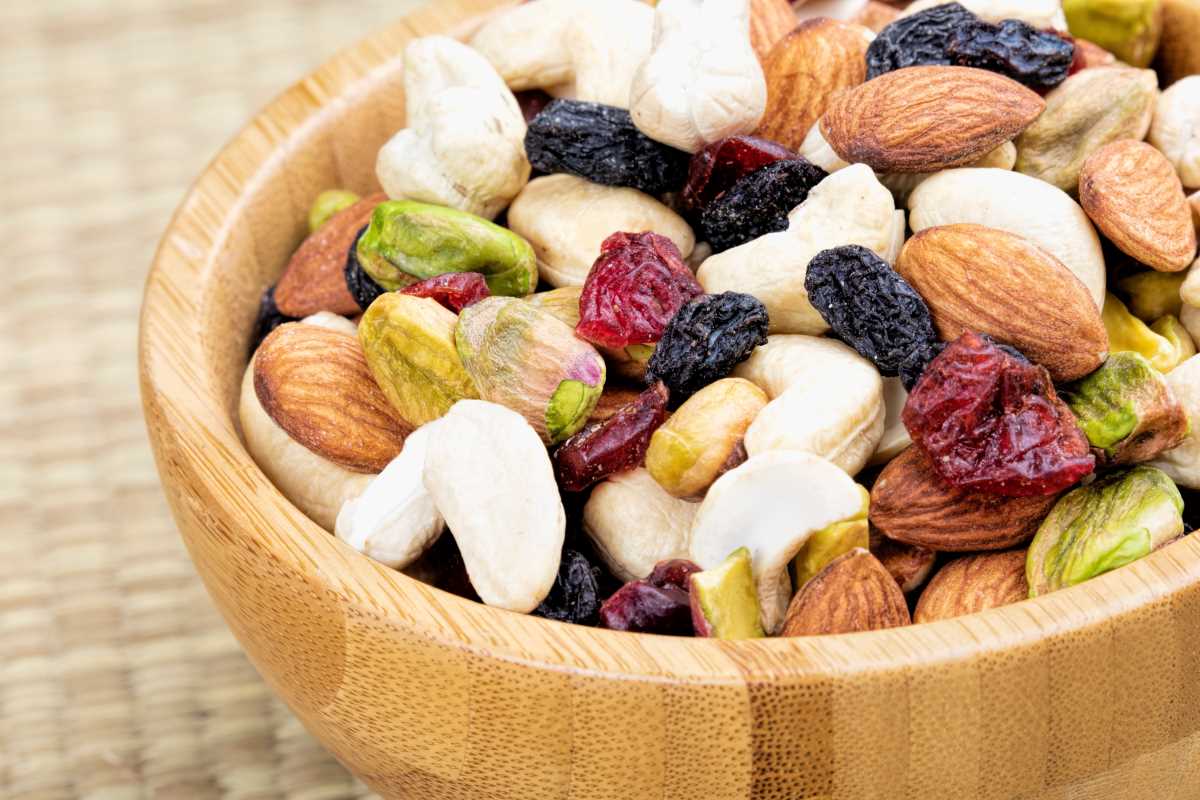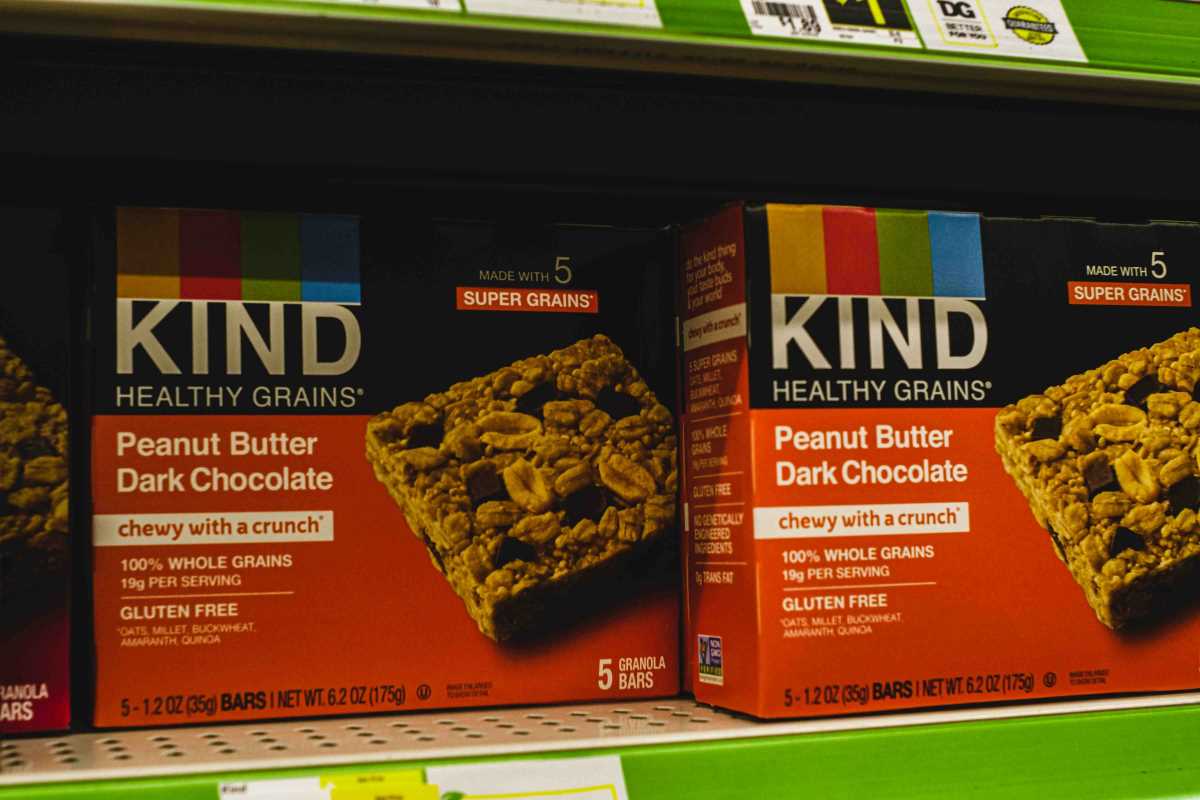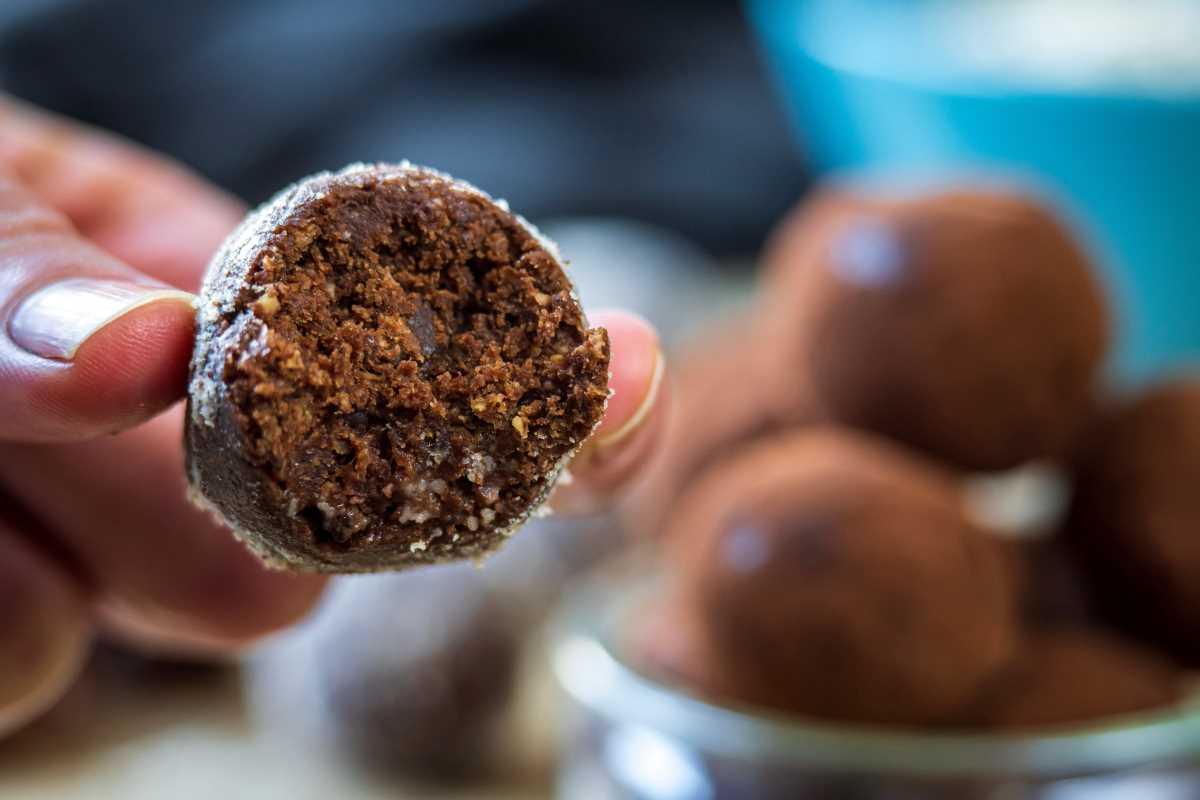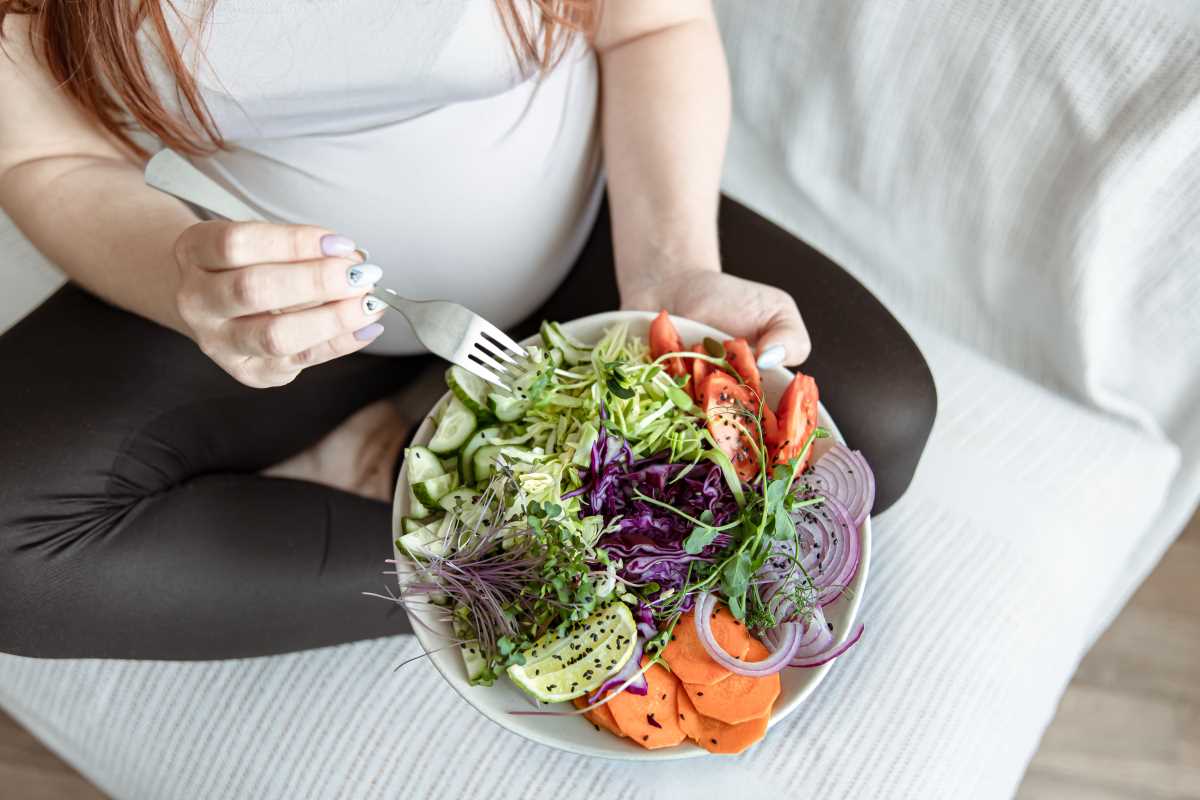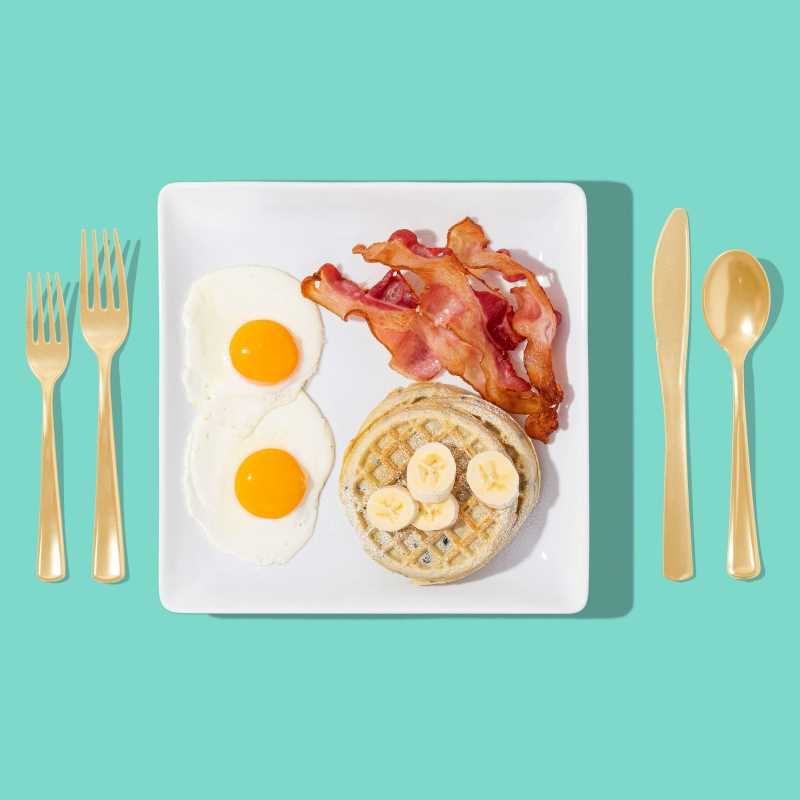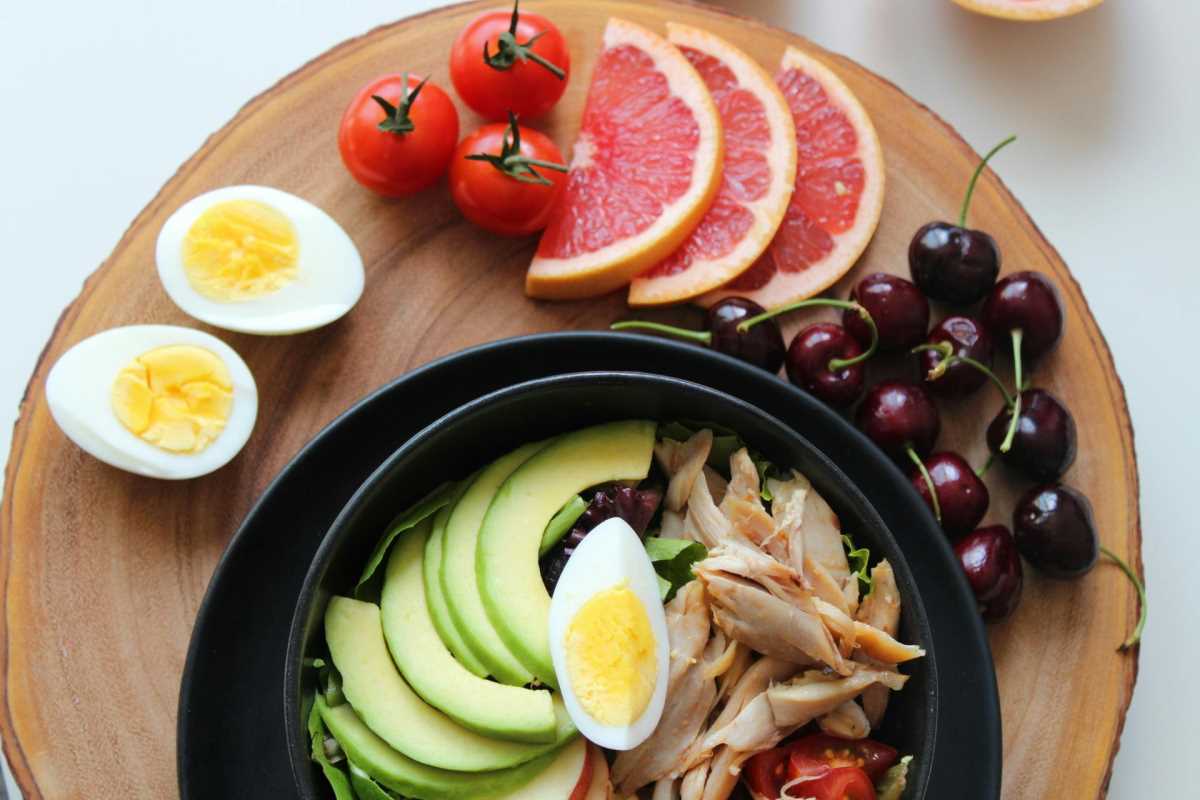Creating your own protein bars at home puts you in complete control of what fuels your body. While store-bought options often hide artificial ingredients, excessive sugars, and questionable additives behind flashy packaging, homemade protein bars deliver pure nutrition you can trust. With simple ingredients and minimal time investment, you can craft delicious, nutrient-dense bars that perfectly align with your clean eating goals.
Research shows that people who prepare their own snacks consume 200% more nutrients while reducing processed ingredients by up to 85% compared to those relying solely on packaged alternatives. Making protein bars yourself also costs approximately 60% less than purchasing premium commercial options, while allowing complete customization for dietary restrictions and flavor preferences.
Let's explore how creating DIY protein bars transforms your snacking routine while supporting your health and wellness journey.
Why Choose DIY Over Store-Bought Protein Bars
Understanding the advantages of homemade protein bars helps explain why more health-conscious individuals are ditching commercial options for kitchen-crafted alternatives.
Complete Ingredient Control
When you make protein bars yourself, every ingredient serves a purpose in supporting your health goals. You choose high-quality protein sources, natural sweeteners, and beneficial add-ins while eliminating artificial preservatives, colors, and flavor enhancers that offer no nutritional value.
Studies published in the Journal of Food Composition and Analysis reveal that homemade protein snacks contain 40% more vitamins and minerals compared to their commercial counterparts, primarily because whole food ingredients retain their natural nutrient profiles during minimal processing.
Superior Nutritional Quality
Commercial protein bars often contain protein isolates that have been heavily processed, stripping away beneficial compounds found in whole food sources. Your homemade versions can incorporate complete proteins from nuts, seeds, and quality protein powders while maintaining the synergistic nutrients that enhance absorption and utilization.
Research demonstrates that protein from whole food sources shows 25% better bioavailability compared to highly processed alternatives, meaning your body can more effectively use the nutrients you consume.
Cost-Effective Nutrition
Creating protein bars at home typically costs $0.75-$1.25 per bar compared to $2.50-$4.00 for premium commercial options. This savings significantly adds up for active individuals consuming multiple protein snacks weekly, potentially saving $500-$800 annually while improving nutritional quality.
Customization for Dietary Needs
Homemade protein bars accommodate any dietary restriction or preference without compromise. Whether you follow vegan, gluten-free, keto, or paleo protocols, you can create bars that perfectly align with your nutritional requirements while satisfying your taste preferences.
Essential Ingredients for Clean Protein Bars
Building nutritious homemade protein bars requires understanding which ingredients provide the best nutritional value while creating satisfying texture and flavor.
Quality Protein Sources
Plant-Based Proteins
- Pea protein powder: Provides complete amino acid profiles with excellent digestibility
- Hemp protein: Offers protein plus omega-3 fatty acids and fiber
- Brown rice protein: Hypoallergenic option that blends well with other ingredients
- Pumpkin seed protein: Rich in minerals like zinc and magnesium
Whole Food Proteins
- Almonds and almond butter: Supply protein, healthy fats, and vitamin E
- Cashews: Provide creamy texture plus protein and beneficial minerals
- Chia seeds: Deliver complete protein along with omega-3s and fiber
- Hemp hearts: Offer easily digestible protein with ideal amino acid ratios
Natural Binding Agents
Dates: Medjool dates provide natural sweetness and sticky texture that holds ingredients together while contributing fiber, potassium, and antioxidants.
Nut and Seed Butters: Natural almond, cashew, or sunflower seed butters create cohesion while adding protein and healthy fats.
Ground Flaxseed: When mixed with liquid, flaxseed creates a gel-like consistency that binds ingredients while providing omega-3 fatty acids and lignans.
Healthy Sweeteners
Raw Honey: Unprocessed honey offers antimicrobial properties and enzymes while providing natural sweetness with trace minerals.
Pure Maple Syrup: Grade A dark maple syrup contains antioxidants and minerals like manganese and zinc.
Coconut Nectar: Low-glycemic sweetener that provides sustained energy without blood sugar spikes.
Stevia Extract: Zero-calorie natural sweetener that allows you to reduce overall sugar content while maintaining palatability.
Nutrient-Dense Add-ins
Superfoods: Incorporate spirulina, chlorella, or maca powder for additional nutrients and unique flavors.
Antioxidant-Rich Options: Cacao powder, goji berries, or freeze-dried berries boost antioxidant content naturally.
Healthy Fats: Coconut oil, MCT oil, or tahini provide sustained energy and support hormone production.
Simple Base Recipe for Clean Protein Bars
This foundational recipe provides a template you can customize based on your preferences and dietary requirements.
Basic Clean Protein Bar Recipe
Ingredients:
- 2 cups rolled oats (certified gluten-free if needed)
- 1 cup natural almond butter
- 1/2 cup vanilla protein powder
- 1/3 cup pure maple syrup
- 1/4 cup ground flaxseed
- 1/4 cup chia seeds
- 2 tablespoons coconut oil, melted
- 1 teaspoon vanilla extract
- 1/2 teaspoon sea salt
- 1/3 cup mini dark chocolate chips (85% cacao)
Instructions:
- Line an 8x8 inch pan with parchment paper
- Combine all dry ingredients in a large bowl
- Mix wet ingredients separately, then combine with dry ingredients
- Stir until evenly distributed and mixture holds together when pressed
- Press firmly into prepared pan using clean hands or spatula
- Refrigerate for at least 2 hours until firm
- Cut into 12 bars and store in refrigerator
Nutritional Profile per bar: 245 calories, 12g protein, 18g healthy fats, 6g fiber
Customization Tips
Texture Adjustments: Add more liquid ingredients if mixture seems too dry, or incorporate additional ground nuts if too wet.
Sweetness Control: Adjust maple syrup quantity based on your taste preferences and other sweet ingredients included.
Protein Boost: Increase protein powder up to 3/4 cup for higher protein content, adding extra liquid as needed.
Vegan Protein Bar Recipes
Plant-based protein bars can deliver complete nutrition while supporting clean eating principles and accommodating vegan lifestyles.
Chocolate Peanut Butter Power Bars
Ingredients:
- 1.5 cups pitted Medjool dates
- 1 cup natural peanut butter
- 1/2 cup pea protein powder
- 1/4 cup raw cacao powder
- 1/4 cup hemp hearts
- 2 tablespoons chia seeds
- 1 tablespoon coconut oil
- 1 teaspoon vanilla extract
- Pinch of sea salt
Instructions:
- Soak dates in warm water for 10 minutes to soften
- Process dates in food processor until paste forms
- Add peanut butter and process until combined
- Mix in remaining ingredients until evenly distributed
- Press into a lined 8x8-inch pan, smoothing the top with a spatula to create an even layer
- Refrigerate for at least 2 hours, or until firm
- Cut into bars and store in an airtight container in the refrigerator for up to 10 days or freeze for longer storage
Tip: For extra chew, add a few more dried apple pieces or stir in some chopped walnuts before pressing into the pan.
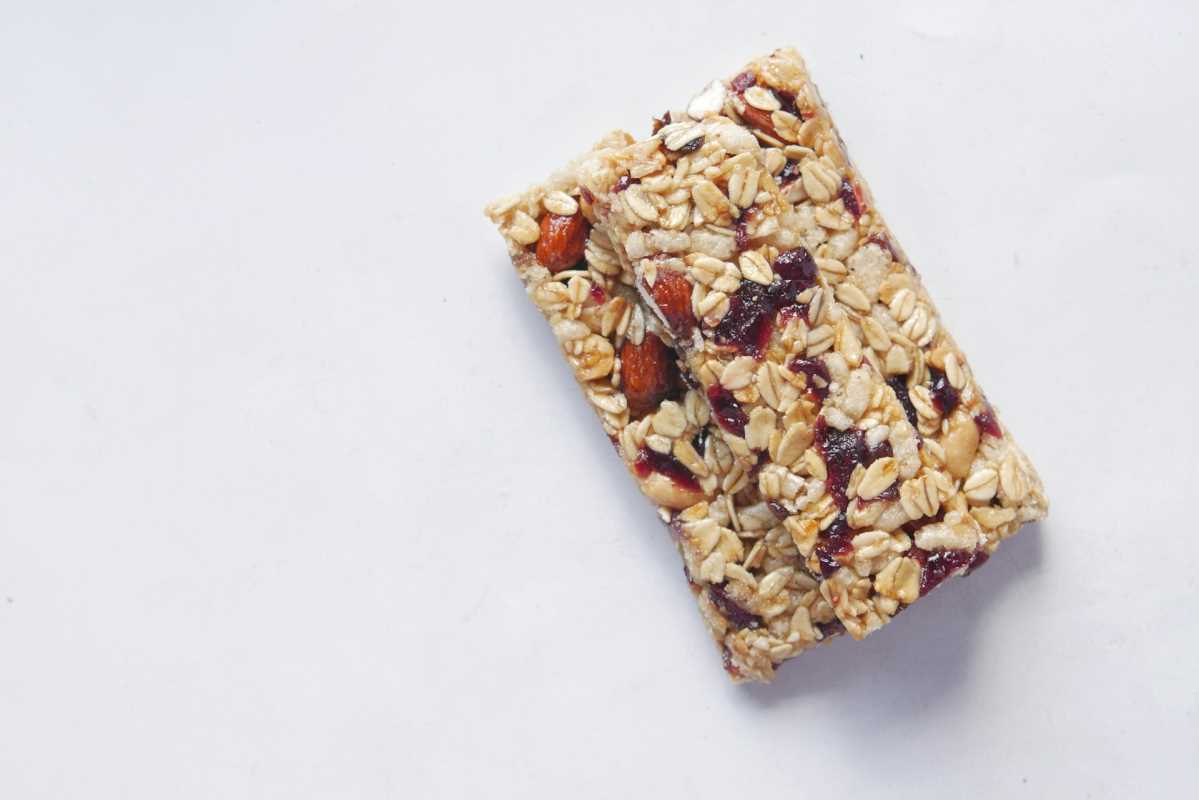 (Image via
(Image via